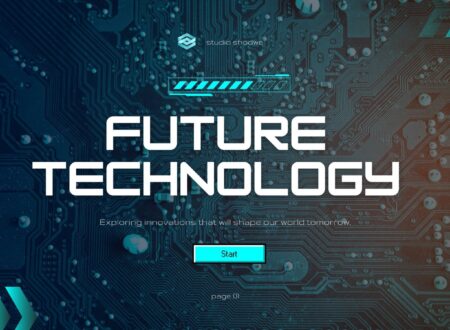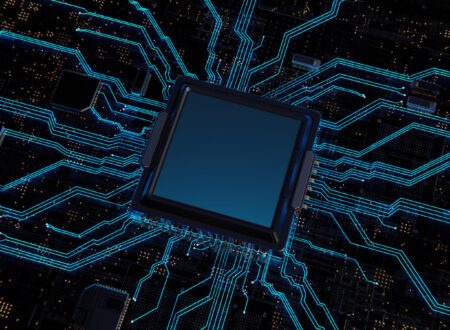Introduction to Emerging Technologies
The world of technology is evolving at a breathtaking pace. Each day brings new innovations that challenge our understanding of what’s possible. From the way we communicate to how we interact with our environments, advancements are weaving themselves into the fabric of our everyday lives. Imagine walking down a street where your smart device seamlessly connects you to everything around you or experiencing a virtual landscape so immersive that it feels real.
As we stand on the brink of these technological revolutions, it’s exciting to consider how emerging technologies will shape our future. Let’s dive into some game-changing innovations that promise to redefine not just industries but also the very essence of daily life.
Artificial Intelligence (AI) and its Impact on Daily Life
Artificial Intelligence is weaving its way into the fabric of everyday life. From smart assistants like Siri and Alexa to intricate algorithms that help us discover new music or movies, AI is everywhere.
Imagine waking up in a home that adjusts the temperature based on your preferences before you even step out of bed. This technology isn’t far off; it’s already being implemented in many households.
In workplaces, AI streamlines repetitive tasks, freeing employees to focus on creative problem solving and innovation. Chatbots provide customer support around the clock, improving service efficiency while reducing wait times.
Beyond convenience, AI raises questions about privacy and data security. As it learns from our behaviors and preferences, what happens to our personal information? The balance between enhanced living and safeguarding identity becomes crucial as innovations continue to unfold.
Virtual and Augmented Reality: How They Will Transform Industries
Virtual and augmented reality (VR and AR) are not just for gaming anymore. These technologies are poised to revolutionize various industries, enhancing how we work and interact.
In education, VR can transport students into historical events or complex scientific environments, making learning immersive. Imagine exploring the solar system from your classroom!
The healthcare sector will also benefit significantly. Surgeons can practice intricate procedures in a virtual space before operating on real patients. This reduces risks and improves outcomes.
Retail is another area where AR shines. Customers can visualize products in their own homes through their smartphones before making a purchase. This interactive experience elevates consumer confidence.
Even tourism is evolving with these innovations. Virtual tours allow people to explore distant locations without leaving home, opening new doors for accessibility.
As industries adapt to these technologies, the way we engage with our world will fundamentally shift, creating opportunities that were once unimaginable.
Internet of Things (IoT) and Its Role in Smart Cities
The Internet of Things (IoT) is weaving a new fabric for urban life. Smart cities are beginning to buzz with interconnected devices that communicate seamlessly.
Imagine streetlights that adjust brightness based on traffic patterns or waste bins that signal when they’re full. These innovations not only enhance efficiency but also contribute to sustainability efforts, reducing energy consumption and optimizing resources.
Moreover, IoT sensors in public transportation systems can provide real-time updates, helping commuters plan their journeys better. This leads to reduced congestion and happier residents.
Public safety can benefit as well. Surveillance cameras equipped with AI technology can detect unusual activities, alerting authorities instantly.
As these technologies evolve, the potential for enhanced quality of life becomes more tangible. Citizens will enjoy smarter environments tailored to their needs while fostering community engagement like never before.
5G Technology: Revolutionizing Communication and Connectivity
5G technology is a game-changer, pushing the boundaries of what we thought was possible in communication. With lightning-fast speeds and minimal lag, it transforms how we connect with each other and access information.
Imagine downloading an entire movie in seconds or participating in high-definition video calls without interruptions. The world becomes smaller as real-time interactions become seamless.
This new wave of connectivity opens doors for innovation across various sectors. Smart cities can thrive with efficient traffic management and enhanced public safety through connected devices. Healthcare can reach new heights with remote surgeries becoming feasible.
As businesses adapt to this rapid shift, opportunities will emerge for startups and established companies alike. Enhanced data transfer rates mean that everything from entertainment to education will be redefined, allowing us to experience life in ways previously unimagined.
Ethical Considerations of Rapid Technological Advancements
As technology evolves, it raises critical ethical questions. The rapid pace of innovation often leaves little time for society to adapt or regulate effectively.
Artificial intelligence, for instance, poses challenges in privacy and decision-making. Who is accountable when an AI system makes a mistake? Such dilemmas need careful thought.
Moreover, automation threatens jobs across various sectors. How do we ensure that workers are not left behind as machines take over tasks? Addressing this issue requires proactive solutions.
Data security is another pressing concern. With more devices connected than ever before, the potential for breaches increases dramatically. Protecting personal information must become a priority.
There’s the risk of creating societal divides based on access to technology. Equity in tech adoption could shape our future profoundly; disparities might widen if not addressed consciously and inclusively.
Conclusion
As we stand on the brink of a new technological era, the potential for innovations to reshape our lives is immense. Emerging technologies like artificial intelligence are already influencing how we work and interact. The seamless integration of AI into everyday tasks can enhance productivity and provide personalized experiences.
Virtual and augmented reality promise to revolutionize industries such as entertainment, education, and healthcare by creating immersive environments that transform learning and therapy. These technologies allow us to escape our physical boundaries, making distant places feel accessible.
The Internet of Things continues to grow, connecting devices in ways that foster smarter cities. Imagine living in an urban space where everything from traffic lights to waste management systems communicates efficiently with one another—making life more convenient while enhancing sustainability.
5G technology stands at the forefront of this transformation, offering unprecedented speeds and connectivity. It opens doors for advancements in telemedicine, remote work dynamics, and even autonomous vehicles—creating a landscape where communication is instantaneosly reliable.
Yet with great power comes responsibility. Ethical considerations around privacy, job displacement due to automation, and digital accessibility demand careful thought. As these technologies evolve rapidly, society must engage in conversations about their implications.
Looking ahead offers both excitement and uncertainty regarding what lies next on the horizon of innovation. Embracing change will be crucial as we navigate through this evolving tech landscape together.





